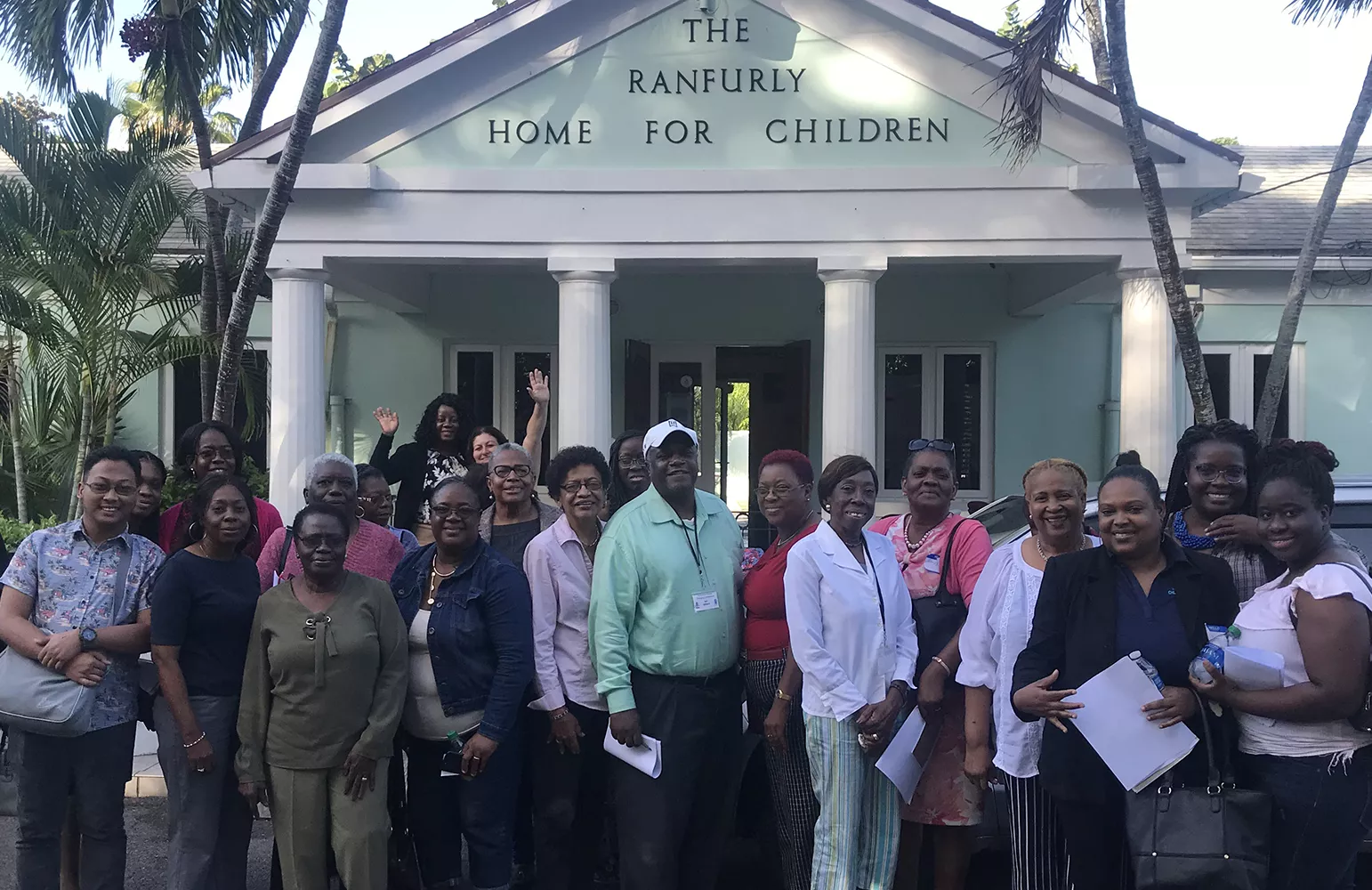
It’s been more than six months since Hurricane Dorian decimated several of the islands in the Bahamas with some of the heaviest rains and strongest winds the country had ever experienced.
As the Caribbean nation moves into the mental health and psychosocial care phase of post-disaster response, Assistant Professor of Social Work Tamarah Moss and Dean of the Graduate School of Social Work Janet Shapiro are among those trying to assist in the recovery efforts.
Their work has included providing trauma-informed training for more than 45 people, including staff from all the residential homes in New Providence providing care for children who were evacuated from the hard-hit islands of Grand Bahama and Abaco, and other social workers and professionals working with children experiencing some form of trauma
“These are staff members who have spent the last six months focusing on caring for others, but they have also lived through this trauma,” says Moss, a native Bahamian who co-led the workshop in Nassau. “When we talk about trauma-informed care, we’re talking about the needs of both the clients and the caregivers.”
The workshop introduced core concepts to support understanding of the impact of traumatic stress on children and adolescents. This included defining what is meant by a “trauma-informed approach” in working with children and adolescents who have experienced traumatic stress.
“As part of the workshop we highlighted the difference between ‘stress’ and ‘trauma,’ with special attention to our understanding of ‘disaster distress’ within community contexts,” explains Moss.
In addition, Moss and Shapiro discussed how traumatic stress may impact child and adolescent development and how trauma can alter the stress response system in the developing child.
“Another key part of the workshop was to think about the application of these ideas within a local context,” says Moss. “None of this work will be sustainable if it’s not done in a culturally responsive way.”
Shapiro co-led the workshop remotely, but her expertise was invaluable, says Moss.
“As the co-director of the Center for Family and Child Wellbeing, Janet’s expertise as a social work researcher and developmental psychologist brought a unique and appropriate expertise to the workshop, with the emphasis on providing trauma-informed care to child and youth in persistent displacement,” says Moss. “This exemplifies the capacity of the Center to foster technical and skills-based collaboration, in support of the well-being of children and families in a variety of contexts.”
Moss and Shapiro say they plan to continue to work with the Bahamian agencies and hope to develop long-term relationships with several of the organizations. Moss extended special thanks for help in planning the workshops to the staff from the Ranfurly Homes for Children and The Bahamas Crisis Centre.
“I'm really excited about this collaborative effort as it reflects so many of our core values, including civic and global engagement, and is very much in line with our humanitarian values as well,” says Shapiro.